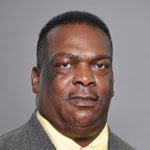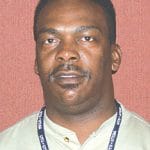
“Buckling your safety belt should be an automatic practice for every driver and passenger since it’s the simplest and most effective way to save your life in the event of a crash,” said U.S. Transportation Secretary Anthony Foxx. “The purpose of this art contest is to engage children and their parents in discussing safety and to provide a calendar of kids’ artwork that serves as a year-round reminder to always buckle-up.”
In just the last three years, safety belt use has continued to rise among medium-to-heavy truck and bus drivers to an all-time high of 84 percent, according to a 2013 FMCSA study. While good news, there is room for improvement. The National Highway Traffic Safety Administration’s most recent data from 2012 showed that 697 occupants of large trucks were killed in crashes; approximately 40 percent were not wearing safety belts.
“The good news is that overall safety belt use for professional bus and truck drivers has steadily increased each year and as a direct result, more lives are being saved,” said FMCSA Acting Administrator Scott Darling. “We are focused on reminding every driver that there is never an excuse to skip the important step of buckling up.”
FMCSA will accept contest submissions through Feb. 28, 2015. Students can submit their artwork by mail to the following address:
CMV Safety Belt Partnership
c/o CVSA
Attention: Nicole Leandro
6303 Ivy Lane, Suite 310
Greenbelt, MD 20770
Artwork will be evaluated in two categories: one for kindergarten through second grade, and another for third through sixth grade.
Twelve winners will be selected in April 2015, and their artwork will appear in the 2016 “Be Ready. Be Buckled.” contest calendar.
All 12 students will also be honored at a ceremony at USDOT headquarters to be held in the spring. To see last year’s winners and learn more about the “Be Ready. Be Buckled.” contest, visit: http://www.fmcsa.dot.gov/safety-security/safety-belt/index.htm.
 WASHINGTON – A Final Rule has been issued by the Federal Motor Carrier Safety Administration (FMCSA) prohibiting bus (including school bus) drivers and truck drivers, operating in interstate commerce, from using hand-held cell phone while operating their vehicles.
WASHINGTON – A Final Rule has been issued by the Federal Motor Carrier Safety Administration (FMCSA) prohibiting bus (including school bus) drivers and truck drivers, operating in interstate commerce, from using hand-held cell phone while operating their vehicles.
